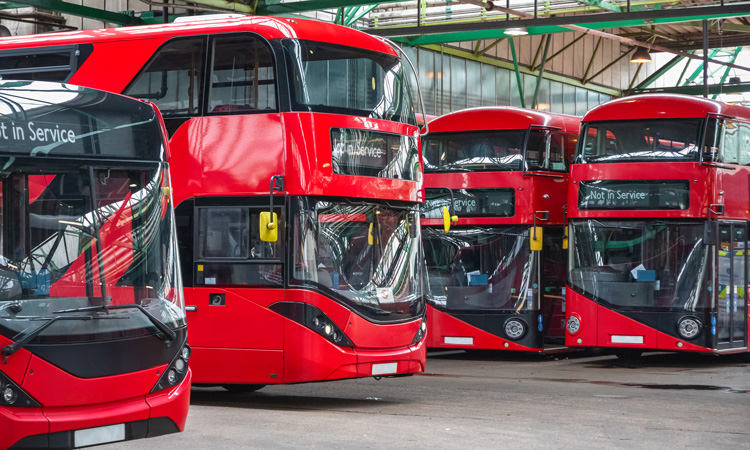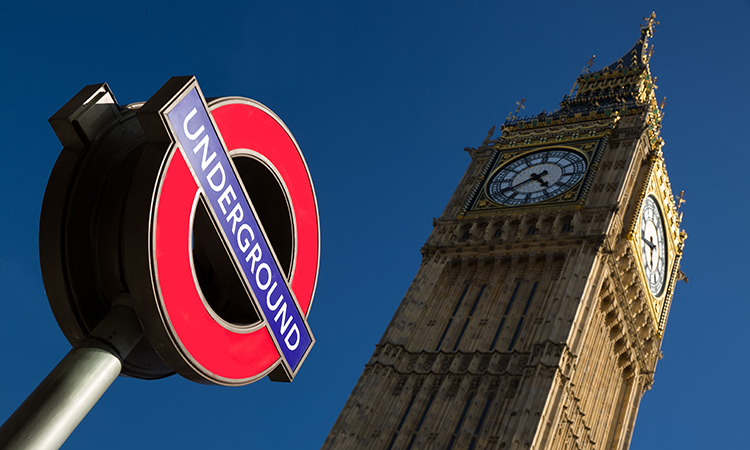Jobs across the UK in danger due to lack of Transport for London funding
- Like
- Digg
- Del
- Tumblr
- VKontakte
- Buffer
- Love This
- Odnoklassniki
- Meneame
- Blogger
- Amazon
- Yahoo Mail
- Gmail
- AOL
- Newsvine
- HackerNews
- Evernote
- MySpace
- Mail.ru
- Viadeo
- Line
- Comments
- Yummly
- SMS
- Viber
- Telegram
- Subscribe
- Skype
- Facebook Messenger
- Kakao
- LiveJournal
- Yammer
- Edgar
- Fintel
- Mix
- Instapaper
- Copy Link
Posted: 21 January 2022 | Intelligent Transport | No comments yet
As TfL deals with the financial repercussions caused by COVID-19, the Mayor of London has warned that 43,000 jobs across the UK are at risk due to a lack of funding.


With less than a month until the current Transport for London (TfL) funding deal from the government expires, the Mayor of London, Sadiq Khan, has warned of the dire threat against tens of thousands of jobs across the country, as well as the repercussions that will be felt all around the UK, as TfL deals with an unprecedented financial crisis caused by the pandemic.
London makes a significant contribution to the UK economy, and its transport system will be of huge importance for the capital to drive the national recovery from the pandemic. TfL contracts contribute around £7 billion to the UK economy while supporting 43,000 jobs around the country, with 55p of every pound spent on the London Underground by TfL going outside of London.
Due to a lack of funding from the UK government, many of the jobs at risk are likely to be outside of the capital, as London’s bus manufacturing supports 3,000 jobs across the UK alone, including in Scarborough, Falkirk, Leeds and Ballymena, Northern Ireland, making up a third to half of all new bus orders in the UK in any given year.
Immediate impact on new bus contracts
The lack of a long-term funding deal is having an immediate impact on the order books for UK bus manufacturers, as London bus operators only place vehicle orders when new contracts have been awarded, and TfL has paused awarding new bus contracts since early November 2021.
Furthermore, if the government fails to provide the funding that is required, TfL may be unable to refurbish 1,000 New Routemaster buses – brought in by the previous Mayor, Boris Johnson, and owned by TfL – which are currently due for their mid-life refurbishment. This may also lead to potential bus service cuts under a managed decline scenario, impacting the order pipeline for a range of bus manufacturers and specialists around the country.
In addition, the continued electrification of the capital’s bus fleet would be under threat, with the date for a full zero-emission fleet likely to slip until at least 2037, from 2034. Bus electrification in London is encouraging other areas around the country to follow – so, if orders for electric buses stop in London, progress towards electrification will slow nationally, increasing costs and losing the benefit for the entire country.


Credit: Greater London Authority
Threat to future job opportunities
As well as key suppliers, TfL awards support work for approximately 3,000 small- and medium-sized enterprises (SMEs) in the UK. Many of these provide very niche products and services, and TfL can be a significant proportion of their turnover. SMEs account for three fifths of the employment and around half of turnover in the UK private sector, and their recovery and growth are essential.
London Underground renewal projects also account for a significant number of jobs across the country. One hundred per cent of track labour is UK-based, with an estimated 20 per cent (£16 million) supplied from Northwest England and Wales. The Central Line Improvement Programme (CLIP) has already begun investing millions into rolling stock, infrastructure and equipment for the Central Line fleet.
Following TfL’s order for 94 new Piccadilly Line trains, Siemens Mobility is building a manufacturing facility at Goole in Yorkshire, representing an investment of £200 million into the area, creating 700 direct jobs and 1,700 indirect jobs once the factory is in operation. Half of the new Piccadilly line trains will be assembled there in the coming years. TfL also has options built into its contract with Siemens to build new Bakerloo and Central line trains in the future; so, if TfL has sufficient funding to activate these options, that could provide ongoing work for this important Yorkshire manufacturing base and its supply chain.
Driving the UK economy
“London’s transport system is not only fundamental to the success of the capital, but to driving economic prosperity right across the length and breadth of the country. That is why it is so important that the government urgently comes forward with the long-term funding that TfL desperately needs so that we can keep services running and deliver much-needed improvements to our transport infrastructure,” said the Mayor of London, Sadiq Khan.
“It is no exaggeration to say that tens of thousands of highly skilled jobs – many of which would be from outside the capital – will be at risk if Ministers fail to properly fund TfL. In addition, our strides towards bus electrification will be halted and the capital will suffer, with fewer buses on the roads and an unreliable Tube service with ageing trains,” he added.


The UK government has only provided a short-term funding deal that lasts until 4 February 2022 and, without a clear commitment to provide sufficient long-term funding, or continued short-term deals, TfL is currently having to plan on the basis of a managed decline of the capital’s public transport network.
In practice, this could mean more than 100 bus routes being withdrawn and less frequent Tube timetables on a number of lines and branches, with more overcrowding despite the ongoing importance of social distancing.
TfL has already had to make tough decisions on future projects due to the economic impact of the pandemic, including putting the Bakerloo line extension on pause and even having to look at potentially closing a whole Tube line. In a managed decline scenario, the Bakerloo line extension along the Old Kent Road towards Lewisham would become undeliverable for at least a decade.
Without proper funding from the government for new transport infrastructure, there would be 155,000 fewer homes delivered by 2031, equating to a loss in potential land value uplift of between £6 billion and £9 billion.
Related topics
Accessibility, Alternative Power, COVID-19, Fleet Management & Maintenance, Passenger Experience, Public Transport, Sustainable Urban Transport, Transport Governance & Policy, Workplace
Related modes
Bus & Coach, Underground
Related cities
London
Related countries
United Kingdom
Related organisations
Siemens Mobility, Transport for London (TfL), UK Government
Related people
Boris Johnson, Frances O'Grady, Sadiq Khan







